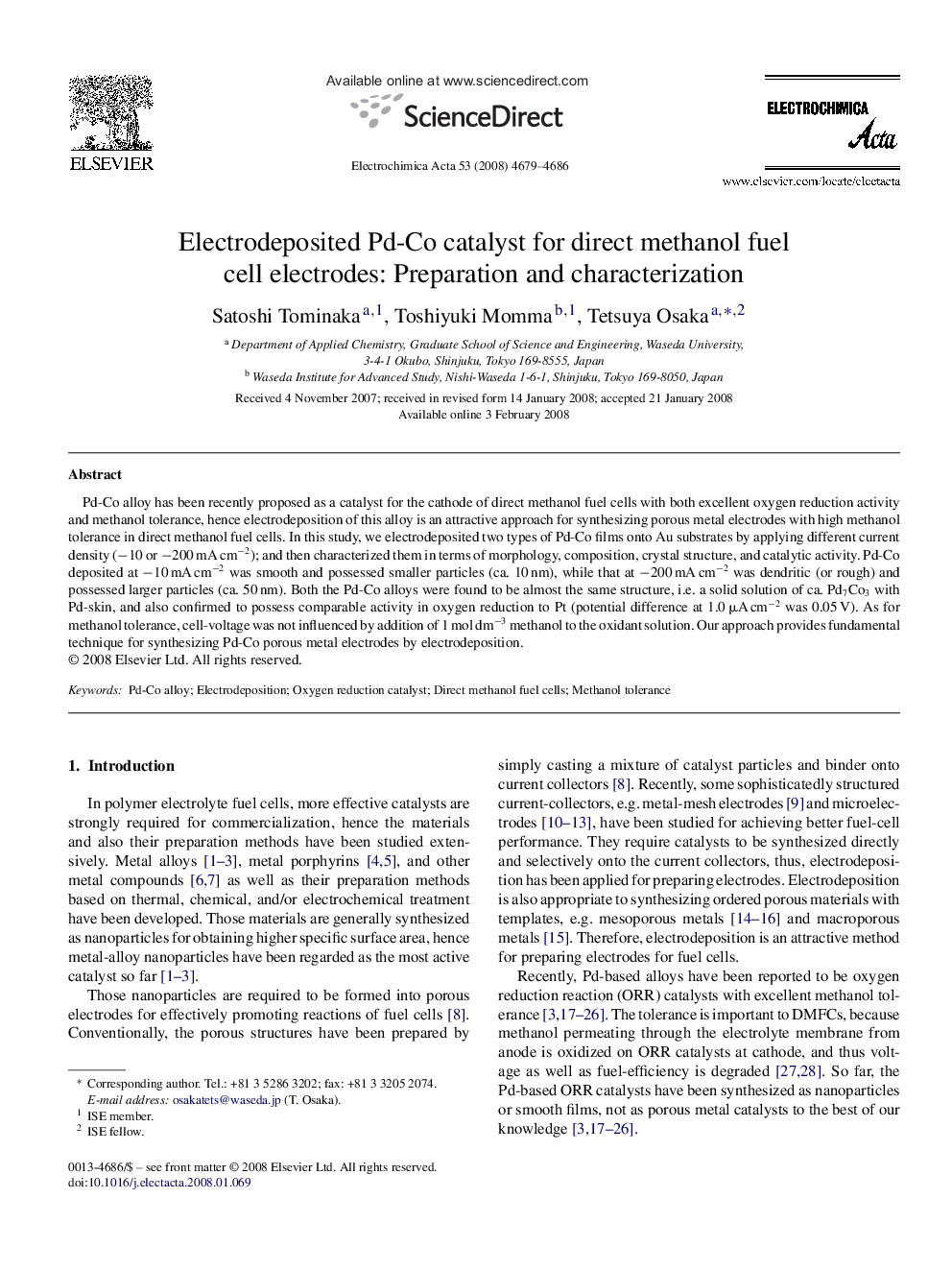| Article ID | Journal | Published Year | Pages | File Type |
|---|---|---|---|---|
| 192848 | Electrochimica Acta | 2008 | 8 Pages |
Pd-Co alloy has been recently proposed as a catalyst for the cathode of direct methanol fuel cells with both excellent oxygen reduction activity and methanol tolerance, hence electrodeposition of this alloy is an attractive approach for synthesizing porous metal electrodes with high methanol tolerance in direct methanol fuel cells. In this study, we electrodeposited two types of Pd-Co films onto Au substrates by applying different current density (−10 or −200 mA cm−2); and then characterized them in terms of morphology, composition, crystal structure, and catalytic activity. Pd-Co deposited at −10 mA cm−2 was smooth and possessed smaller particles (ca. 10 nm), while that at −200 mA cm−2 was dendritic (or rough) and possessed larger particles (ca. 50 nm). Both the Pd-Co alloys were found to be almost the same structure, i.e. a solid solution of ca. Pd7Co3 with Pd-skin, and also confirmed to possess comparable activity in oxygen reduction to Pt (potential difference at 1.0 μA cm−2 was 0.05 V). As for methanol tolerance, cell-voltage was not influenced by addition of 1 mol dm−3 methanol to the oxidant solution. Our approach provides fundamental technique for synthesizing Pd-Co porous metal electrodes by electrodeposition.
